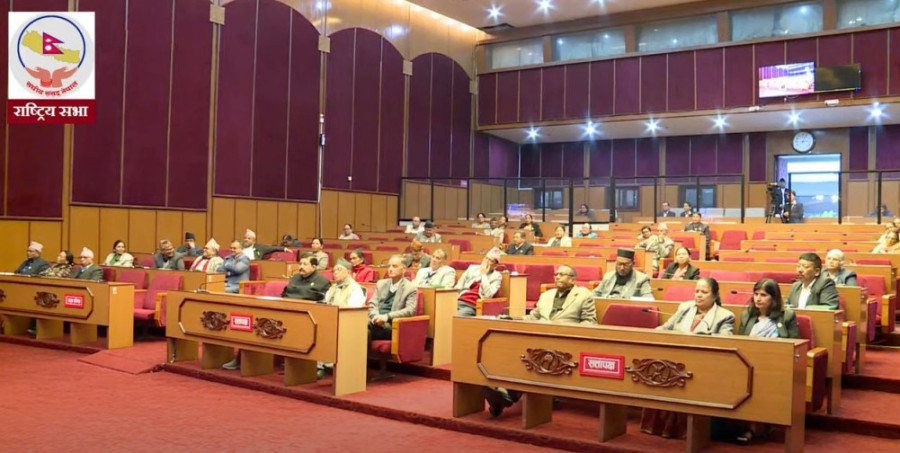National
National Assembly passes Media Council Bill
The upper house on Monday gave its approval to the controversial Media Council Bill, with provisions criticised by media professionals still intact.
Post Report
The National Assembly passed the ‘Media Council Bill 2080’ in its meeting on Monday, despite significant objections from media professionals. The bill, which includes a provision for the council’s chairperson to be appointed by the government, aims to replace the existing Press Council of Nepal with a new body called the Media Council Nepal.
While some aspects of the bill were modified following discussions, the key provision of having a government-appointed chairperson remains unchanged. Critics have argued that this provision could place the council under government influence, undermining its independence.
Rajendra Laxmi Gaire, a member of the National Assembly, expressed concerns about the government’s control over the council’s leadership, calling for the removal of the provision that allows the government to appoint the chairperson. However, the majority of members voted in favour of retaining the existing structure.
Minister for Communications and Information Technology, Prithvi Subba Gurung, claimed that the bill had been through thorough discussions within the National Assembly’s committee and called for the passage of the bill by consensus.
Under the new bill, the Media Council will have a chairperson and 11 members, including representatives from the Ministry of Communications, the Nepal Press Union, and other media stakeholders. The council will be tasked with regulating media conduct, advising the government on media policy, and ensuring compliance with media ethics.
One of the bill’s most contentious provisions, however, concerns the criteria for selecting the chairperson. The bill stipulates that the chairperson must be a person with qualifications equivalent to a Supreme Court judge. Despite this, critics argue that the government’s involvement in the selection process could limit the council’s independence.
Moreover, the bill includes a clause that mandates media owners to disclose their sources of income and investments, with a requirement to include a disclaimer in any news stories related to their businesses.
While the bill removes many of the more contentious provisions proposed in an earlier draft, such as fines and prison sentences for publishing content deemed offensive, media professionals remain sceptical. Suresh Acharya, former president of the Federation of Nepali Journalists, criticised the bill for not addressing their concerns regarding the government's oversight of the council.




 17.9°C Kathmandu
17.9°C Kathmandu














